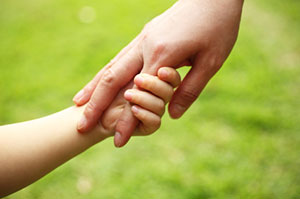Pennsylvania Child Custody Questions

If you recognize a custody problem, you need to take prompt, swift action to get an enforceable Court order in place that not only protects your rights as a parent but ensures the best interests of your children will be protected. Often times with child custody, you have one spouse who has custody and the other spouse has visitation or partial custody, and one or both have to move out of the area and there becomes a relocation issue. Pennsylvania family law attorney Jonathan Comitz of the Comitz Law Firm has a tremendous amount of experience in child custody cases.
The most important consideration in custody actions in Pennsylvania is the best interest of the child.
How long must I have lived in Pennsylvania prior to filing for divorce in a Pennsylvania court?
You must be a resident of Pennsylvania for 6 months before filing for divorce in the Commonwealth. You have the option of filing for divorce in the county in which you reside, provided you have lived there for at least 6 months, or the county in which you resided while you were married, provided that your spouse still lives in that county.
What exactly is meant by the term “child custody” and what are the different forms of custody and visitation?
Often when spouses separate or file for divorce, children are impacted. It is critically important to look out for the best interests of your children when going through such an emotional and financial transition. Child custody refers to having the rights of caretaker, or custodian, of a minor child. If you are divorced, separated from or do not live with the other parent of your child, you will likely have to confront custody issues. There are two (2) types of custody—legal custody and physical custody. Legal custody refers to the ability to participate in making major parental decisions regarding your child, such as religious affiliation, which schools to attend, and the like. In the vast majority of situations the parents share legal custody of their children.
Physical custody refers to the ability to physically spend time with and care for the child or children. A parent or guardian can have primary physical custody, shared physical custody or partial physical custody. Primary physical custody refers to the parent or guardian who is with the child a majority of the time. Conversely, the parent or guardian who is with the child less than the primary physical parent is designated as having partial physical custody. The parties may also share custody of the child or children. Finally, in some circumstances a parent will only have visitation rights, which provide that parent with periods of visitation with the child. Visitation situations typically arise if a parent has not seen the child for a long period of time, of if there are allegations of abuse or drug use by the parent.
What happens if the parents cannot agree on custody or visitation issues?
If the parents cannot agree to a custodial and / or visitation arrangement for the children, they can institute a custody action with the domestic relations section of the county in which they live, and the Court will establish those arrangements. The best interests of the child controls: stability, maintaining the status quo, educational opportunities, financial ability, quality of home life, impact on siblings, and the ability to provide overall care for the child. Courts favor the substantial involvement of both parties in the child’s life, and typically will attempt to craft a schedule that provides both parents with the most amount of time as is practicable to spend with the child or children.
What do I do if I want to change a custody designation or modify a custody order?
Once you receive a Court order or enter stipulation which provides you with either primary, partial or shared physical custody, it is very difficult to change that designation. Generally, a custody designation may be changed by one of only two ways: (1) by agreement of the parties or (2) by Court order, which usually would only occur after a custody trial. However, you may seek to modify a custody order, such as changing days and times of custody, further specifying a parent’s duties / responsibilities, or putting special conditions on periods of custody. Modification can be accomplished by filing a Petition to Modify with the Court, and then a conference will be scheduled before a Custody Master.
I am being deprived of seeing my children. Is there anything I can do?
Yes, there is almost always something you can do. If a custody action was never instituted, then you can commence one and the Court will provide you with official, legally binding custody rights and obligations. If you are already have custody rights to your child or children, then you can file a contempt petition seeking to hold the other parent in contempt of Court for depriving you of your custody rights. You may have other options as well, and it is best to consult with an experienced family law attorney if your custody rights are being withheld.
Is it possible for my ex-spouse (or myself) to move out of state with the child or children?
Before any party may relocate with the child, notice must be given to every person with custody rights to that child. Notice is accomplished by sending a Notice of Proposed Relocation Form to the other parent and allowing for 20 days to for the other party to object to the proposed relocation. This is required for any relocation, even if it is to a neighboring county in Pennsylvania. A parent or guardian is only permitted to relocate with the child if the other parent agrees to the relocation or with Court approval. Therefore, if the proposed relocation is objected to a hearing will be scheduled to determine if the proposed relocation is in the best interests of the child or children. If a party relocates without first sending the required Notice and without Court approval, that party will be adjudged in contempt of Court and will be forced to return with the child.
Contact our law firm to schedule a consultation about your divorce or other family law concern, call us at (570) 829-1111. Our child custody attorneys serve clients in Luzerne County, Lackawanna County, and the rest of the Commonwealth of Pennsylvania.


